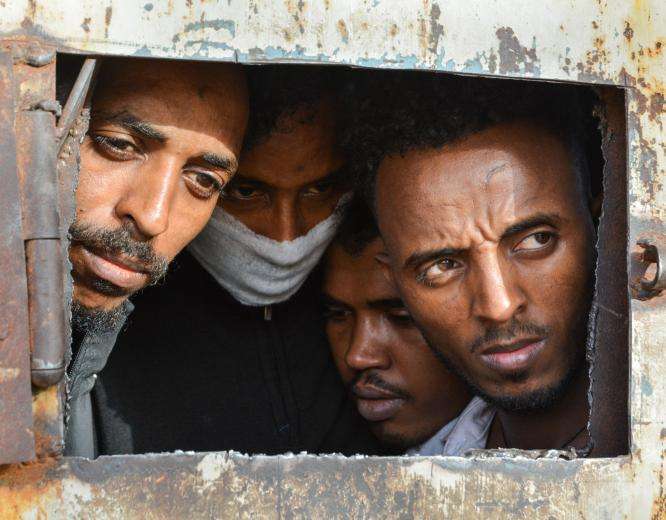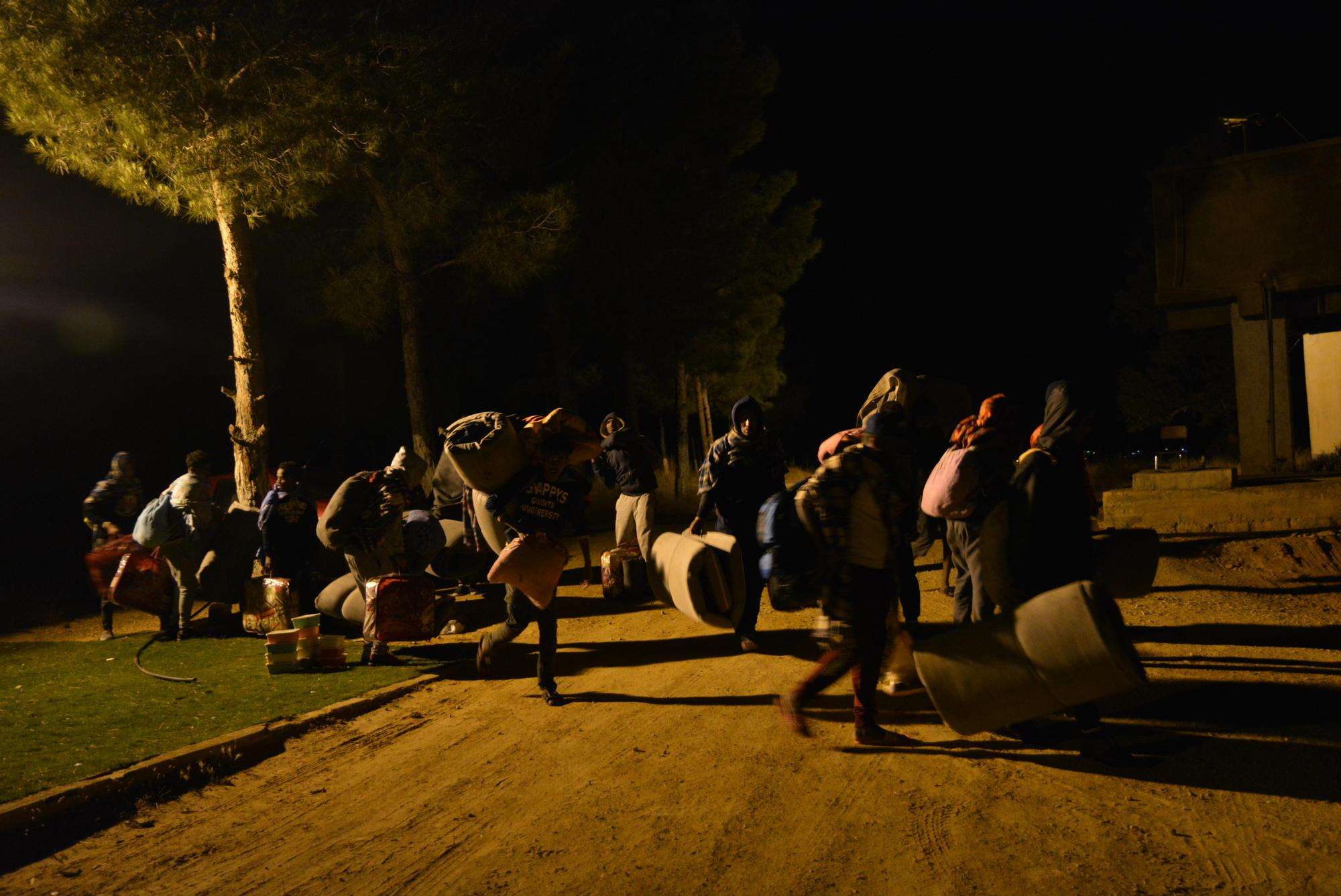Like most refugees and asylum seekers who fled Eritrea, John, now 38, left his country to escape mandatory and indefinite national service—an institution criticized by the United Nation’s Human Rights Council for terrible conditions and treatment including arbitrary detention, torture, sexual violence, and forced labor. The Doctors Without Borders/Médecins Sans Frontières (MSF) team met John in April 2019 in a detention center in Libya, when he was seriously ill and desperate to leave the country and seek safety in Europe. Here, John talks about the nearly three years he spent trapped in Libya, incarcerated in four different detention centers.
The first time I tried to cross the Mediterranean was in December 2017. The smuggler had warned us: “Some of you will leave today and the others tomorrow.” We stayed on the shore as 180 people boarded a boat before breaking down off the coast of Libya. The coastguards brought them back to shore and some of them were able to call to us: “Don't go to sea, it's too bad!” Along with 24 other Eritreans, we fled. A few days later, the boat I was [meant] to take sank. Eighty people drowned. This happened shortly after my arrival in Libya.
After fleeing Eritrea, I worked in Sudan to save money to cross the Sahara and then the Mediterranean. But I realized that the sea was dangerous, that many migrants were drowning, and I got scared. At the same time, the UNHCR [the United Nations refugee agency] began registering asylum seekers like me and resettling some in Europe and North America. As registration was done primarily in detention centers, I decided to lock myself up in a center in Tripoli. I was registered in March 2018. I spent seven months in this center, then the fighting [between rival armed groups] resumed in Tripoli. We were transferred to another detention center, isolated in the mountains near Zintan.
Many inmates fell ill. I coughed constantly. I didn't know it [at the time] but I had contracted tuberculosis (TB). The director of the center and doctors from an international organization selected about 40 detainees, promising us that we would be transferred to a hospital in Tripoli. Instead, we were taken to another detention center and locked in a [shipping] container for several months. Eight of [the group] died from the disease. It was during this period, in April 2019, that I met the teams of MSF. Their doctors examined us and started transferring us to hospitals.

Out of Libya
In a new report, MSF calls for the evacuation of the most vulnerable migrants in Libya to safe countries and outlines failings of existing mechanisms to get people out of Libya.
The detention center was located on a front line between rival militias. Shelling was frequent and bullets often entered the compound. One day, we were put on a bus and told, “You’re in a war zone, we realize that this place is not safe for you. You will be driven to the UNHCR Gathering and Departure Facility in Tripoli.” Everyone was happy. It was known that those who were housed in this center were selected to be evacuated from Libya to Europe or North America. Then, when we reached Zawiya, 50 km [about 31 miles] from Tripoli, a UNHCR employee told us that there was no reason for us to go to the Gathering and Departure Facility. They left us in Tripoli and gave us 450 Libyan dinars [about $93 USD], barely enough to last two weeks.
UNHCR said we were going to live safe in this city, but for us Tripoli is neither free nor safe. The neighborhood of Gargaresh is full of drug addicts, finding work is very difficult, people point guns or knives at you, and they can even kill [people]. Some of us preferred to return to a detention center rather than risk our lives on the streets of Tripoli. I lived in an abandoned building with 110 other refugees, mostly Eritreans. We were sometimes 12 [people] per room.
One day we went to the UNHCR office to ask for help and we were robbed by militia at a checkpoint in the town. Some of us tried to work, but we weren't paid or our money was stolen. It happened to me in the hospital where I worked as a cleaner. A militia commander tried to recruit me into his forces to fight alongside them. We fled Eritrea to [avoid] becoming soldiers, how could we [fight in] war in Libya?
The period of the coronavirus has been terrible for us. Those who used to work couldn’t find jobs anymore. Some were imprisoned and beaten. Employers [said they] were afraid that black Africans would infect them with corona. We were thin because of other diseases and lack of food, but when people saw us in the streets, they believed we had corona.
I was still waiting for UNHCR to contact me to get me out of Libya. I waited for two years and five months and nothing happened. Why stay in Libya if UNHCR is not calling me? Trying to cross the sea is facing death, but staying in Libya is facing death too.
If the refugees attempt the crossing, it is because they are desperate. I was desperate. In November 2020, I finally decided to attempt the crossing again. I boarded a boat with 100 migrants. We reached the island of Lampedusa in Italy on our own.
Many of my comrades are still stuck in Libya. Of the 40 who were evacuated with me from Zintan, two died of TB in Tripoli. Two others disappeared in the Mediterranean. A friend was captured by the Libyan coastguard and locked up again in a detention center. Three managed to cross, like me. As far as I know, only four have been selected for resettlement by UNHCR. So many died in Libya during the three years I spent there. Today, I am safe in Europe. I have a job. I'm free. But I lost a lot, I can’t get back what I lost.




